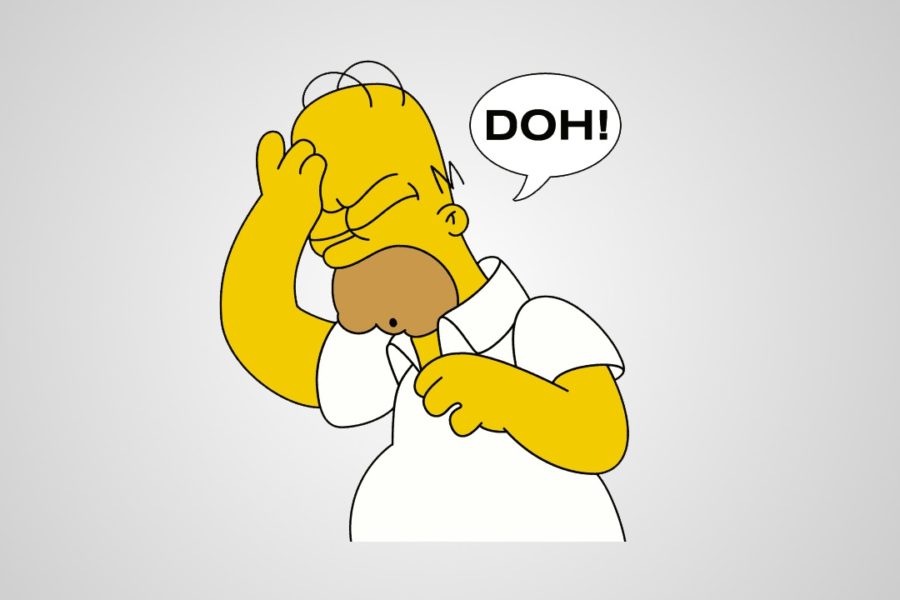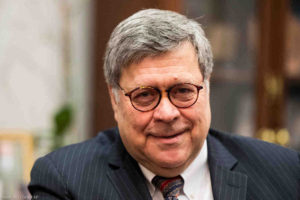On February 16, 2018, Special Counsel Robert Mueller obtained a federal indictment of 13 Russian nationals and 3 Russian companies for conspiring to wage “information warfare” by “impairing, obstructing, and defeating the lawful functions of the United States by dishonest means in order to enable Defendants to interfere with U.S. political processes, including the 2016 presidential election.”
The indictment was heralded by the media as a major achievement by Team Mueller. But a few observers questioned whether Mueller truly expected any of the defendants to appear in a U.S. court to answer the charges. Others asked if the indictment was merely an empty public relations move by the special counsel’s office attempting to show that its investigation was producing solid results.
Against all expectations, in April 2018, lawyers for one of the Russian corporate defendants, Concord Management and Consulting, LLC (“Concord”) entered their appearances in the U.S. District Court for the District of Columbia. They then served extensive discovery requests on Team Mueller seeking full disclosure of the government’s case and investigation including sensitive national security and intelligence information.
This type of discovery is called “graymail” (as distinguished from blackmail) in which the government is faced with having to disclose closely guarded state secrets in order to proceed with the prosecution. The alternative is to drop the charges.
So, should Team Mueller even bother to litigate the discovery requests? The maximum penalty against Concord is an uncollectable $500,000 fine or equally uncollectable compensation to anyone damaged by the alleged conspiracy. If that’s all they can hope to accomplish, what’s the point of the exercise?
If they lose the discovery litigation and are faced with having to disclose sensitive intelligence information about the case and their investigation, should they withdraw the indictment against Concord? And, if they drop the charges, are they prepared for the resulting public mockery and howls of derision?
Bottom line: how did such a purportedly smart bunch of lawyers get themselves into this fix?
On Friday May 5, 2018, Team Mueller tried to buy some maneuvering time by filing a motion asking U.S. District Judge Dabney Friedrich to postpone Concord’s arraignment set for May 9, 2018. They claimed that it was unclear whether Concord had formally accepted the court summons related to the case. In their motion, they included Concord’s discovery requests.
“Until the Court has an opportunity to determine if Concord was properly served, it would be inadvisable to conduct an initial appearance and arraignment at which important rights will be communicated and a plea entertained,” wrote the prosecutors. “That is especially true in the context of this case, which involves a foreign corporate defendant, controlled by another, individual foreign defendant, that has already demanded production of sensitive intelligence gathering, national security, and foreign affairs information.”
Team Mueller proposed that the arraignment be postponed while the parties briefed the issue of whether the court summons has been properly served on Concord.
The next morning, Concord’s lawyers replied, “Defendant voluntarily appeared through counsel as provided for in [the federal rules], and further intends to enter a plea of not guilty. Defendant has not sought a limited appearance nor has it moved to quash the summons. As such, the briefing sought by the Special Counsel’s motion is pettifoggery.”
Defense counsel argued that Team Mueller was trying “to usurp the scheduling authority of the Court” by waiting until Friday afternoon to try to delay a proceeding scheduled for the following Wednesday. They also stated that the special counsel’s office has not replied to Concord’s discovery requests and, ratcheting up the pressure on the Muellerites, stated that their client intends to assert its speedy trial rights.
Judge Friedrich, a Trump appointee, denied Team Mueller’s request and ruled that the arraignment would proceed as scheduled.
At the arraignment, Concord’s lead counsel, Eric Dubelier, was asked whether he represents Concord Catering, another one of the charged Russian companies. He replied that he did not and added, “I think we’re dealing with the government having indicted the proverbial ham sandwich. That company didn’t exist as a legal entity during the time period alleged by the government.” Oops!
Then, hinting at more of the graymail yet to come, he remarked that, “We now know that the special counsel apparently has access to [Concord’s] confidential filings at the Office of Foreign Assets Control, which in and of itself is a disturbing fact.”
Dubelier proceeded to turn up the heat by stating, “Your Honor, we waive formal reading of the indictment. We enter a plea of not guilty. We exercise our right to a speedy trial.”
Today, June 12, 2018, Team Mueller responded to the defense discovery requests by warning the court that Russian intelligence services still have active “interference operations” into U.S. elections and that handing over certain evidence in the criminal case could imperil ongoing investigations. They asked Judge Friedrich for an order to protect voluminous evidence sought by Concord. According to the prosecution, the evidence includes between 1.5 and 2 terabytes of data and involves U.S. residents not charged with crimes who Team Mueller says were unwittingly recruited by Russians to engage in political activity.
Mueller’s prosecutors wrote in today’s request for a protective order that disclosure of such evidence would help foreign intelligence services in Russia and elsewhere while undermining U.S. law enforcement and national security investigations, U.S. documents identify “sources, methods and techniques used to identify the foreign actors behind these interference operations.” Improper disclosure of that information would tip foreign intelligence services about how the U.S. operates and let them “adjust their conduct, thus undermining ongoing and future national security operations.”
Prosecutors said they have gathered “unclassified but sensitive information that remains relevant to ongoing national security investigations and efforts to protect the integrity of future U.S. elections.” It includes the identities of cooperating individuals and companies, as well as links between the defendants, uncharged parties and foreign governments, that goes well beyond what prosecutors intend to disclose at trial, they wrote. They gave additional details to Judge Friedrich under court seal.
Prosecutors asked Friedrich to bar any co-defendant of Concord from reviewing evidence until they appear in her courtroom to respond to the charges. They also want to regulate disclosure of “particularly sensitive material to foreign nationals” by first limiting it to U.S. lawyers for defendants.
Concord is controlled by Yevgeny Prigozhin, a Russian caterer who is close to Russian President Vladmir Putin. It provides food services to the Kremlin.
Concord’s lawyers, in a move calculated to raise the pressure and to render Team Mueller even more crazed than they already are, insisted that they should be able to share the evidence with Prigozhin. Presumably this would be done in the context of preparing their defense of Concord and, as such, would be entirely proper. The prosecutors desperately and illogically countered that “As long as Prigozhin chooses not to appear personally in front of this court, he is not entitled to review any discovery in this case. Mueller’s prosecutors also accused a related catering firm and another Prigozhin group called the Internet Research Agency of running a vast troll operation designed to sow discord in the 2016 U.S. presidential election. Prigozhin has known Putin since the 1990s, when both lived in Saint Petersburg and Putin was the city’s deputy mayor.
Under Mueller’s proposed plan, any foreign national who wants to disclose sensitive discovery materials to others would have to go through a “firewall counsel” for the government, which would be separate from the prosecution team.
The court has yet to rule on the prosecution’s request. Nevertheless, it is fair to ask why Mueller and his band of legal geniuses didn’t anticipate getting themselves into this fix before they brought these criminal charges. Or did it never occur to them that one or more of the defendants would actually appear in court to fight the charges? Generally speaking, when you file criminal charges, there is always the risk that pesky defendants will show up to defend themselves. That’s just one of a thousand reasons why it’s a really bad – bordering on downright boneheaded – idea to use a criminal indictment as a public relations tool to create the appearance of investigative progress and productivity.
So the Mueller pit bulls are running around with their hair on fire. Even if they win the discovery battle and the case at trial, what’s the prize? A $500,000 fine or compensation to victims? How will they collect?
On the other hand, if they lose the discovery battle, they will be faced with a bitter choice. Either disclose the purported classified secrets and go to trial or protect the secrets by dropping the charges against Concord. Option A would result in a meaningless “victory”. Option B would be a major embarrassment and further proof that they are wasting their time and millions of our tax dollars trying to undo the outcome of the 2016 presidential election.
Either way, it couldn’t happen to a nicer bunch of thugs.




1 Comment
Leave your reply.